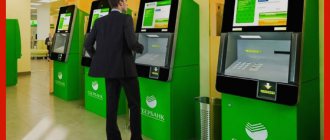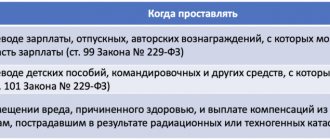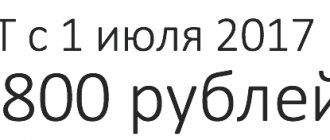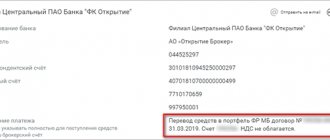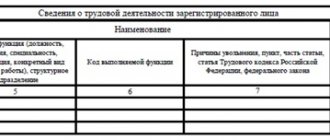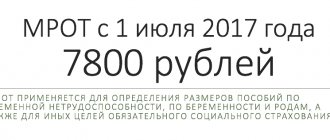We are all accustomed to card transfers. No need to withdraw cash or run to the ATM. We don’t hesitate to give our card account number, or send a photo of the card via messenger. Of course, it’s so convenient and fast! But, unfortunately, it is not safe in terms of taxation if you do not have the status of an individual entrepreneur. Is tax paid on income to a bank card of individuals or not, what risks exist and how to avoid them? Let's figure it out.
When receiving funds on a bank card, keep in mind that tax authorities initially consider all receipts to your account as income for personal income tax purposes. How could it be otherwise, because inspectors often see a picture where funds arrive without identification marks, the payment cannot be identified in terms of the purpose and purpose of receipt. In the column “Purpose of payment”, sometimes they write: payment/refund/transfer, etc., whatever, or even the field may remain empty. This plays into the hands of the tax authorities, because an unclear payment gives reason to believe that the individual has received income. It is possible to additionally charge personal income tax, penalties and fines. But there are also incomes that are not subject to personal income tax!
The issue of personal income tax disappears if the money came from a legal entity. individuals or individual entrepreneurs. They are tax agents who independently withhold and pay personal income tax to the budget. As for receipts from individuals, payments between individuals are not prohibited or limited by law. So, let's try to figure out how to avoid unnecessary additional charges.
According to Art. 209 of the Tax Code of the Russian Federation, when determining the tax base for personal income tax, all income of the taxpayer received by him both in cash and in kind is taken into account. An individual can receive funds from an individual to a bank account for various reasons:
- Repayment of debt from a friend, relative;
- Borrow money from friends for a while;
- Receipt for services rendered;
- Receipt from the sale of something, perhaps used, perhaps new;
- Etc., the list goes on.
Neither the tax office nor the bank will understand for what purposes and for what reasons the funds were received if there is not sufficient information about the purpose of the payment. Thus, all receipts into the account will be considered your income if such information is not specified when sending the payment.
Reasons for the tax panic
Rumors that the tax service will charge taxes for card-to-card transfers from Sberbank or other financial institutions appear several times a year. They are spread by people who want to create a sensation, but do not bother to understand the laws.
The main reasons for rumors about taxes for card-to-card transfers from Sberbank and other financial institutions are directly related to legal norms:
- Art. 210 Tax Code of the Russian Federation. List of income for which a tax resident of the Russian Federation must pay taxes.
- Art. 86 Tax Code of the Russian Federation. Obligations of banks to provide information to the Federal Tax Service when conducting tax control activities.
- Federal Law No. 422-FZ dated November 27, 2018. An experiment in a number of constituent entities of the Russian Federation is the new tax regime “Professional Income Tax”.
The population becomes somewhat wary when information appears that transfers between Sberbank cards will be taxed. After all, many use them to quickly transfer funds to relatives, return debts to acquaintances and friends, or, conversely, to receive them, and also actively use transfers within Sberbank.
Sberbank, other banks and the Federal Tax Service are actively trying to reassure the population. You have to pay taxes on every transfer of money to a card, and the tax payment procedure is not actually connected with the banking transaction at all.
What is personal income tax and who pays it?
Everything is clear from the name: it is paid by individuals who receive money from various sources and must share it with the state.
This tax is also called income tax, or personal income tax. Payers, in turn, are divided into two groups. Tax residents. These include people who live in Russia for most of the year and earn income here and abroad.
Tax non-residents. They receive income from sources in Russia, but spend less than 183 Tax Code of the Russian Federation Article 207 days in the country in 12 months (we are talking about the next consecutive months, and not about the calendar year). There are exceptions. Those who have traveled abroad still remain residents:
- undergo treatment or study for up to six months;
- for work in offshore hydrocarbon fields;
- for military service;
- on a business trip, if we are talking about government officials.
Citizenship does not matter in the matter of residence.
Which transfers are taxable?
Sberbank will not charge tax directly for card-to-card transfers. It is not a fiscal service and does not have the corresponding powers. However, if the money received is the taxpayer’s income, then taxes must be paid.
It is not necessary to transfer tax payments from each deposit to an account in Sberbank (another bank). The taxpayer must take care of paying taxes if he received a transfer for the following reasons:
- for goods sold or services provided;
- for renting real estate, car or other property;
- remuneration for work (in certain cases);
- money prize.
Whether or not the corresponding basis is written in the commentary for the transfer within Sberbank or other banks does not play a special role. What is important is the fact for which the person received the money.
Payment for goods and services
Many people sell various goods through advertisements or provide services. With a single deposit of a small amount, for example, for an old cabinet sold, you usually do not have to report and pay taxes. The person spent money on purchasing this thing and most likely did not have any income.
The situation is different with the regular provision of services and sale of goods. In this case, the person earns and must pay taxes. The standard personal income tax rate is 13%.
If transfers for goods and services are received regularly, then it is often more profitable to register an individual entrepreneur and take advantage of one of the special tax regimes.
In a number of regions, those who sell goods and services can switch to NAP without individual entrepreneur status. At the same time, tax rates will also be more favorable than 13% PFDL.
One of the popular ways for Russians to earn additional income is to rent out real estate. In this case, you also have to pay personal income tax at a rate of 13%. If you live in a number of regions, you can also take advantage of the opportunity to switch to paying NAP.
Financial assistance from loved ones and gifts
Transfers from card to Sberbank card are often used to provide financial support to relatives. In this case, there is no obligation to pay taxes. The situation is similar with gifts received from loved ones. Regardless of the amount received from a relative, there is no need to make tax deductions from it.
If an employment contract is concluded between relatives, then an obligation arises to pay taxes according to the general rules. For example, this situation may arise if the mother is registered as an individual entrepreneur, and her daughter has entered into an employment contract with her.
If a gift is received from a third party (for example, an employer), then there is no need to pay personal income tax, provided that the amount of all such gifts for the year does not exceed 4,000 rubles. In other cases, tax residents of the Russian Federation pay personal income tax at a rate of 13% on the donated amount minus 4,000 rubles.
Debt recovery and compensation
If a friend or acquaintance pays for a paid lunch or repays a debt that was provided without interest, then the taxpayer does not have any income. He does not need to report such a transfer or make tax payments on it.
When lending money (property) at interest, income already appears. In this case, you must report and pay personal income tax at a rate of 13%.
Salary, pension, stipend
Salary is the main type of income for Russian residents; it can also be credited to a Sberbank or other bank card. It is subject to personal income tax at a rate of 13%, the tax is withheld by the employer. Pensions and scholarships, although they are income, are not subject to personal income tax. There is no need to make tax payments when receiving various benefits and other social payments from the state.
Income tax for self-employed
Many Russians earn money by providing various services and selling goods of their own production. In the recent past, if such activities were of a regular nature, it was necessary to register an individual entrepreneur and make all payments to the budget in accordance with the chosen taxation system.
At the end of 2021, the law on NAP was adopted and a professional income tax for the self-employed appeared in a number of regions. You can use it if 4 conditions are met:
- a person provides services or sells goods produced by himself;
- no hired employees are involved;
- The taxpayer's income does not exceed 2.4 million rubles. in year;
- the type of activity of a self-employed person is not included in the list of exceptions (for example, it includes the sale of gold items).
How to avoid unnecessary additional charges from tax inspectors
According to Art. 209 of the Tax Code of the Russian Federation, when determining the tax base for personal income tax, all income of the taxpayer received by him both in cash and in kind is taken into account. An individual can receive funds from an individual to a bank account for various reasons:
- Repayment of debt from a friend, relative;
- Borrow money from friends for a while;
- Receipt for services rendered;
- Receipt from the sale of something, perhaps used, perhaps new, etc.
Neither the tax office nor the bank will understand for what purposes and for what reasons the funds were received if there is not sufficient information about the purpose of the payment. Thus, all receipts to the account will be considered your income.
Article 217 of the Tax Code of the Russian Federation provides for cases when it is not necessary to pay personal income tax:
- from scholarships and benefits;
- from the amounts of parental transfers;
- from the amounts of transfers to parents;
- from alimony;
- from amounts received on the card as a loan or to repay a debt, even from strangers;
- from child benefits;
- from compensation for moral damage;
- from compensation for unused vacation.
Card tax withholding scheme
You can register as a self-employed person through the tax website, a special application from the Federal Tax Service, or through the services of some banks, including Sberbank. There is no requirement to attend an inspection to register. You can receive money for selling goods and services to any card, account, or in cash.
When receiving a transfer for the sale of goods or services, the payer must issue a check on the website in his personal account or through the application. The tax office will independently calculate the required taxes. Information on accruals can be viewed in your personal account or application at the beginning of the next month.
Tax is paid by the 25th day of the month following the reporting month. You can pay it through the online services of Sberbank or any bank. Self-employed people do not submit declarations.
The self-employed may not pay contributions to the Pension Fund and Social Insurance Fund.
Who is legally obligated to pay tax if they receive a payment on a card?
By law, you are required to pay tax if you receive a payment on your card:
●A freelancer or self-employed citizen who charges a fee for his services resells goods. This includes online stores that offer translation as a payment method.
●Landlord. If you rent out an apartment and accept payments by card, then they should become part of your tax reporting. Tax evasion can be prevented by neighbors who are unhappy with the tenants. They can write a statement about income tax evasion and this statement will definitely be considered.
●Any person selling something through Avito or any other method.
The exception is the sale of vegetables and fruits grown in one's own garden.
●Gift recipient, lottery winner. This is a completely separate aspect, but it is worth mentioning, since if a gift is made by an organization, the amount is strictly limited and must be reported.
Cases and payment procedure
When receiving a salary, the taxpayer himself does not need to worry about transferring it. The employer must withhold personal income tax and send this amount to the budget independently. He will also submit all necessary reports to the tax service.
In the following cases, you must file a declaration and pay the tax yourself:
- operates as an individual entrepreneur, a notary and does not apply special regimes;
- when selling property, regardless of whether the money was received by transfer or other means;
- when receiving income outside the Russian Federation;
- when receiving income from which tax was not withheld (for example, from investments in securities).
The report is submitted by April 30, and payments are transferred to the budget by July 15 of the year following the reporting year.
Risks and sanctions in case of detection of undeclared personal income tax.
If undeclared income is discovered, an individual, in addition to additional personal income tax, is subject to additional fines in the amount of 20% of the unpaid tax amount, as well as a penalty.
There are cases where regular income from individuals was regarded as illegal business activity, and criminal liability is possible. Despite the fact that individuals are not entrepreneurs, inspectorates often initiate on-site inspections and charge additional personal income tax and VAT. The courts support the inspectors.
The appeal against the decision of the St. Petersburg City Court dated November 10, 2014 No. 33-17691/2014) indicated that an individual conducting business activities without registration as an individual entrepreneur, in case of failure to fulfill the duties assigned to them by the Tax Code, does not have the right to refer to the fact that it is not an individual entrepreneur (Article 23 of the Civil Code and Article 11 of the Tax Code) and is not a VAT payer. Having analyzed the lease agreements, the court found that the agreements took into account the possible risks of business activity. Witnesses testified that the person being verified had been systematically making profits from renting out premises for a long time. Thus, the plaintiff fell under the article on illegal business activities. The rules of law applicable to individual entrepreneurs who are VAT payers were applied to him. VAT, personal income tax, fines and penalties were collected from the taxpayer.
A similar opinion is contained in the ruling of the Novosibirsk Regional Court dated October 14, 2014 in another case - No. 33-8775/2014 - based on the results of an on-site tax audit of an individual, the inspectorate assessed additional personal income tax, VAT, penalties and fines.
Tax audits
The bank transmits data on all individual accounts to the Federal Tax Service. persons But by default it does not disclose information about transfers. It is provided only when the credit institution receives a request during a tax audit.
The Federal Tax Service conducts checks in various situations, for example, if a person has filed a declaration to receive a deduction. In this case, all account transactions are analyzed. Tax authorities most likely will not be interested in a one-time transfer of a small amount. But constant transfers from different people will arouse suspicion, and they will begin to dig deeper.
If it is determined that a person evaded taxes, he will be fined. Large amounts may result in criminal liability.
Who will not be affected by the new tax?
Only two categories of transfers are not recognized as income and are not subject to new taxation. These are transfers from relatives and gifts.
In the event that a Russian’s relatives or family members transfer money to a bank card, this will not be considered income. But the list of those who can be considered close relatives is limited by the Family Code of the Russian Federation. Among them are:
- husband, spouse,
- parents,
- children,
- adoptive parents, adopted
- siblings,
- grandfather, grandmother, grandchildren.
Gifts are not taxed, even those from non-relatives. This is established by law in accordance with the Tax Code of the Russian Federation.
Answers to frequently asked questions
Transfers from card to card are a popular service. Amid constant rumors about the introduction of taxes on them, the population has many questions. The most popular of them and their answers:
Do I have to pay taxes on a transfer from card to Sberbank card?
This must be done only if profit is made and in cases stipulated by law. If the transfer is made between relatives, friends, etc., then this is not necessary.
Do banks withhold taxes for transfers within Sberbank to other banks?
A bank is a commercial organization. He may charge a commission for transfers from card to card, but does not calculate or withhold taxes.
Is it possible to become self-employed while living in a region not included in the experiment?
You can become a NDP payer regardless of your region of residence and registration, the main thing is to conduct activities in the region where the experiment is taking place.
Are they blocked for frequent transfers?
Often, ordinary people and representatives of small and medium-sized businesses are afraid that they will be targeted by the tax authorities and banks for making too frequent transfers. They say this is a sign of cashing out cryptocurrency, virtual money, funds from cards, or conducting commercial activities.
It's actually not that bad. Firstly, it is profitable for banks to make money
on normal clients and it is unprofitable to refuse cooperation. Secondly, the bank will refuse a client only if it suspects him of illegal activity.
Of course, they can check you. And they won’t even inform you about the measures being taken. And if everything ends badly, they won’t reveal the reason
denial of service - this is prohibited. 2 tbsp. 4 115-FZ.
At the initial stage, the check is performed automatically. There are expensive and complex financial monitoring systems that are constantly being improved. They are the ones who signal suspicious transactions, which are then checked manually.
will recognize the cash out with almost 100% probability
, even if it masquerades as information services.
will not be denied
service .
conclusions
- The very fact of transferring money from a card to a Sberbank (other banks) card is not a basis for charging taxes. It is necessary for a person to make a profit.
- If a transfer from card to card of Sberbank (other banks) was made between relatives or is simply not related to making a profit, then there is no need to make any deductions to the state.
- Sberbank (other bank) does not withhold taxes from transfers independently.
- The bank transmits information about transfers to the Federal Tax Service only during checks upon request.
What's happened?
The Federal Tax Service of Russia, by letter dated May 7, 2021 No. SA-4-7/8614, sent to its territorial authorities a review of judicial practice on disputes related to the qualification of the activities of individuals as entrepreneurial for tax purposes.
This important document reveals the courts' approaches to collecting taxes from citizens who receive income from any activity without being individual entrepreneurs. The conclusions of the courts, of course, are based on the norms of the current legislation, in particular, on the norms of the Tax Code of the Russian Federation. At the same time, the review has not yet taken into account the new conditions for taxation of the activities of self-employed citizens. However, for some reason, many concluded based on this letter that in 2021, tax authorities will massively charge citizens not only personal income tax, but also VAT for transfers to cards. Let’s read the letter from the Federal Tax Service carefully and try to figure out what these conclusions are based on.
